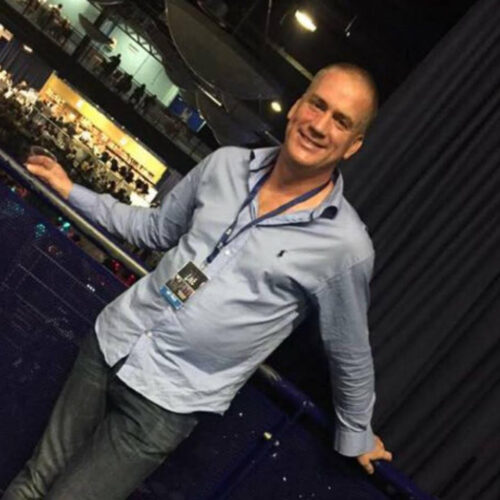Member Spotlight: Michael Coffino

How did you land your first book ghostwriting project?
An old fashioned way. I was on the verge of both retiring from the practice of law after four decades as a trial attorney and launching a fulltime writing career in fiction and non-fiction, with several books in my mental queue. As I geared up to move beyond professional crossroads, I also had begun a relationship with a woman on the speaking circuit—she was the founder of Gymboree and had a remarkable story—and was receiving incessant calls for her “book.” She asked whether I’d be up for tabling my book projects to help her write hers. I was—and so we did (Play it Forward: From Gymboree to the Yoga Mat and Beyond). Voila, by the grace of serendipity, I’d put my toe in ghostwriter waters.
What has been your secret to building a steady stream of ghostwriting clients?
For me, it is broad engagement and visibility. I stay relatively active, albeit somewhat inconsistently, in social media. I write a blog, a practice I suspended for a while and am renewing. I have an active and up to date website and a social media team that tweaks it to increase client traffic its way. I have memberships with associations (like AOG, the Authors Guild, and California Writers Club) and relationships with publishers (like Amplify, The Throne Publishing Group, and Koehler Books), and agencies (like Kevin Anderson & Associates) that produce excellent opportunities. I teach fiction, which exposes me to a wide range of service opportunities, including as author coach and advisor. And most of all, and as glib as it may sound, I make it a priority to make clients happy, never forgetting that ghostwriters like attorneys are in the service business, that it is not about us as writers, it is about them as client authors. I have a motto emblazoned on a plaque on my desk: “Every client is the only client.” Clients can be an invaluable source of referrals.
What do you wish clients understood about the ghostwriting process?
Two things foremost. First, in the initial call I have with potential clients I stress the vital importance of their buy-in. I point out that the success of their project, whatever their goals, depends on their unwavering commitment to what often is a long and demanding process that may test their patience and require significant amounts of their time, energy, and effort. Second is understanding that as an experienced writer and professional (and perpetual student of writing and literature) I will likely have ideas about how to craft their work they did not anticipate or might find counterintuitive, that I might push hard to incorporate them, and that when I do, they should understand I am fighting for their book (and not them), and that, regardless, because it is their book, it is essential they feel comfortable pushing back. That give and take between client and writer is not only wonderfully engaging but immeasurably helpful. My stock advice is “take what you like and disregard the rest.” It is a collaborative process, and we each fill a role.
How would you describe your favorite type of project and client?
One of the sundry benefits of a legal career is learning to work with a broad range of client, not only in terms of a divergent experiences and businesses, but also divergent personalities and sensibilities. It is essential to appreciate that as service providers, whatever the profession, we should accept our clients where they are, understand them, and not judge them. I say that because, while I prize collaboration, accountability, and commitment, I don’t have a favorite type of client and am open to working with any client for whom I am well-suited as a writer.
Another benefit of trial work is developing the art of telling stories from the eyes and perspectives of clients to specific audiences, whether jury, judge, or arbitrator. Legal advocacy, for all its bells and whistles, and grunts and groans, reduces to storytelling. That is what I loved about law practice and what I favor in ghostwriting projects, those that rely heavily on storytelling, whether in the form of exposition or dialogue and nonfiction or fiction.
What are the best parts of this career?
Writing! Writing in different voices. Writing to tell the stories of different clients. Writing to test my own creativity. And as much, relationships. I have found that each of my ghostwriting relationships have changed me in some way, whether exposing me to something new in the world or, more importantly, getting introspective about myself based on client experiences and allowing clients to influence how I see myself and my work. And of course, there is the income.
How can people reach you?
Best ways: email (michael@michaelcoffino.com) and phone: (415) 533-4633.











